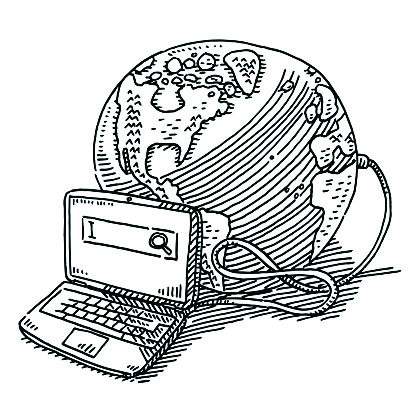Even though the internet is not a space we associate with physical resources or landscapes, it very much affects it. It is an unfathomably large resource and therefore requires resources to sustain it, even if it seems as simple as opening your laptop. Studies estimate that digital technologies are responsible for around four per cent of global greenhouse gas emissions.
Thanks to the pandemic, our online presence has increased dramatically, driving up our energy use along with it. While there’s no use in worrying about the environmental impact of every text you send, digital technology is undeniably becoming an increasingly substantial part of the world’s energy usage. Our digital footprint is part of everything we do online, but there are small internet habits you can incorporate into your daily routine to help reduce it.
- Unsubscribe from spam emails
While emails don’t produce the same physical waste as paper mail does, each still has a carbon footprint of roughly four grams of CO2—which rises to 50 grams when accounting for any attachments. This is because of the energy needed to send emails and store the content in physical data centres. If you get 30 spam emails a day, that’s the equivalent of burning 19 litres of diesel gas a year. Multiply this by everyone you know, and that’s a lot of carbon emissions. And really, who needs that many emails from Facebook and Aritzia, anyway? Websites like unroll.me can make unsubscribing super quick and easy.
- Download the Ecosia search engine
Ecosia is an environmentally friendly search engine extension that uses a portion of its ad revenue to plant trees, instead of lining the pockets of CEOs! Through the use of solar panels, it is also carbon-negative, which means the organization actually offsets more carbon than they produce. You can add this extension to any search engine by searching up “Ecosia.”
- Watch videos in standard definition instead of 4K
Watching a video on your phone in 4K resolution leads to eight times more carbon emissions than watching the same content in standard definition. Make sure to change those video settings, especially when downloading videos or movies to watch later. If you are sending videos to others, try to send them using links instead of file downloads, as this takes much less energy, and will probably be less annoying to your friends as well.
- Delete old files from your “cloud”
Your content in the “cloud” is actually being stored in data centre servers all around the globe, not just on your local computer. These data centers require a lot of energy to operate, whether to help transfer data over long distances, or keep the computers cool. Organizations estimate that data centres represent over one per cent of the world’s energy usage, and this is rapidly increasing as the internet receives more and more traffic. If you can avoid downloading documents you don’t need to keep (think of all those school readings…), this will also help decrease your digital footprint.
- While you’re at it, check your chargers!
Leaving your tech charging all the time, or leaving certain chargers plugged into the wall, is a rarely-considered way many waste energy every day. This is especially true for plugged in devices that actively use energy (either through staying updated, blinking lights to signal being on, etc). Getting in this habit of unplugging will also save you money down the road by gradually decreasing your electricity bill.
Individual action won’t save the planet—tech corporations also need to fix their structural environmental degradation. Nonetheless, simple lifestyle changes are a sure way to decrease one’s personal ecological footprint.









